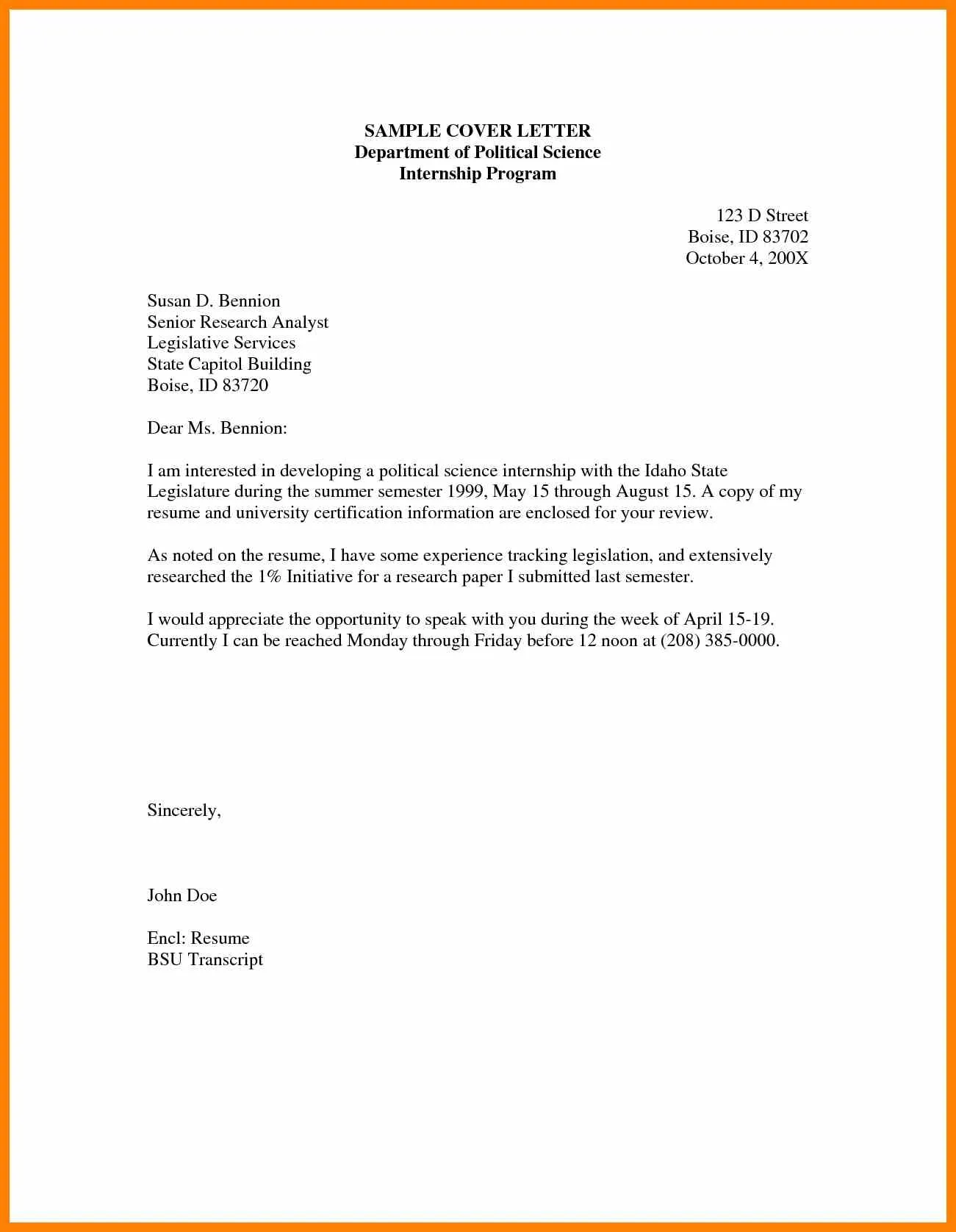Highlight Your Skills
Landing a technical support role without prior experience might seem daunting, but it’s absolutely achievable. The key is to effectively highlight the skills you do possess. Many skills translate seamlessly to technical support, even if they weren’t honed in a traditional IT setting. This section delves into the crucial skills you should spotlight in your cover letter to impress potential employers. By focusing on what you can bring to the table, you can effectively counter the lack of direct experience and increase your chances of getting your foot in the door. Remember, a well-crafted cover letter is your first impression, so make it count by showcasing your strengths.
Transferable Skills You Can Use
Transferable skills are the bedrock of any successful career transition. In the context of technical support, these skills are invaluable. Think about your experiences in other roles or even in your personal life. Have you ever helped a friend troubleshoot a computer issue? Have you volunteered to assist family members with their tech problems? These actions demonstrate an aptitude for problem-solving and a willingness to learn. Examples of transferable skills include customer service abilities, attention to detail, and the capability to explain complex concepts in a simple way. Highlighting these skills showcases your readiness to tackle the challenges of technical support.
Communication Skills
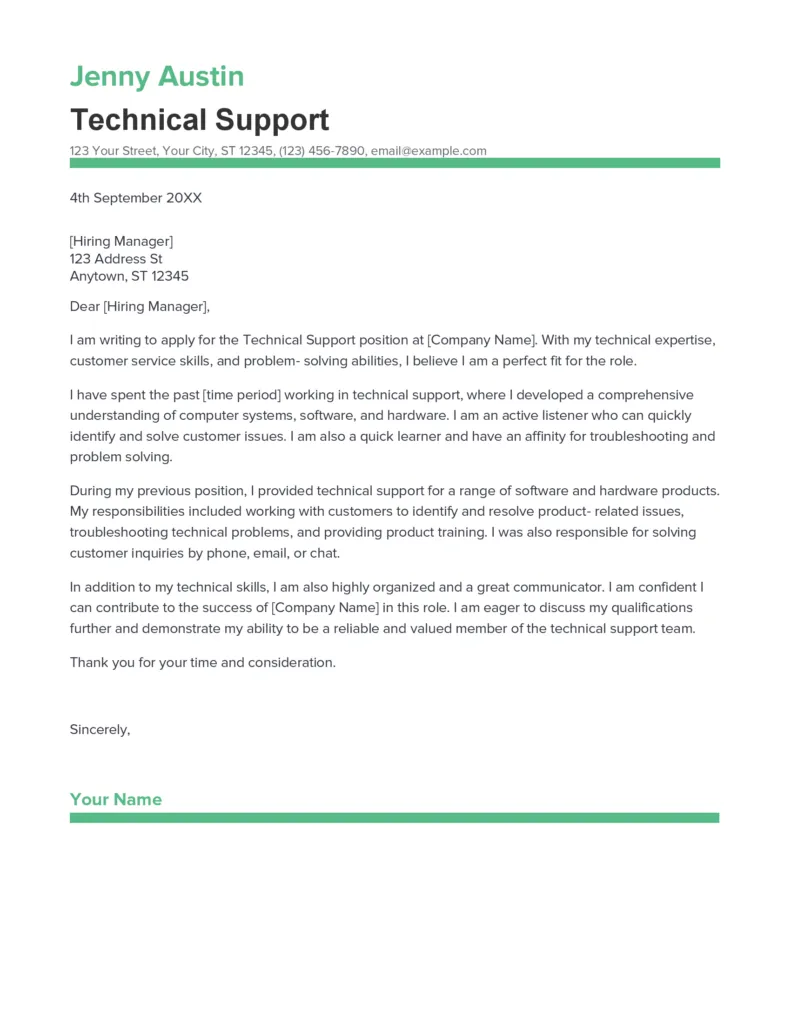
Excellent communication is paramount in technical support. You will regularly interact with individuals who may not have technical expertise. Your ability to explain technical issues clearly and patiently is critical. In your cover letter, provide examples of your communication skills. Did you lead a team project? Did you have to explain complex concepts to a non-technical audience? Illustrate your ability to listen actively, understand concerns, and provide solutions in a clear and concise manner. Showing your ability to articulate complex information simply will distinguish your application. Use examples to showcase these soft skills.
Problem-Solving Abilities
Problem-solving is at the core of technical support. Emphasize your ability to analyze problems, identify root causes, and implement solutions. Do you have a knack for finding information and troubleshooting issues? Have you successfully resolved a complex problem in any context? Use specific examples to demonstrate your problem-solving skills. This could include resolving conflicts, finding creative solutions in school projects, or any instance where you overcame an obstacle. Showcase your systematic approach to problem-solving. Let your potential employer know you are a quick learner and always up for a challenge.
Adaptability and Learning
The tech landscape is constantly evolving. The ability to adapt to new technologies and quickly learn new information is essential in technical support. If you are a fast learner or have independently taught yourself new software, be sure to include this information. Mention any instances where you successfully learned a new skill quickly, such as a new software program, or a new system. Highlight any personal projects or self-study in technology. Displaying a willingness to learn and adapt to new technologies will reassure employers that you are capable of staying current with industry trends.
Showcase Your Passion for Tech
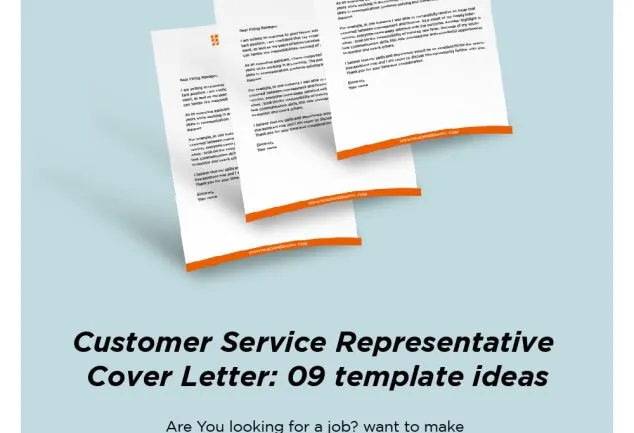
Your genuine enthusiasm for technology can make a significant difference. Technical support requires more than just technical skills; it also requires a passion for helping others and a curiosity about how things work. Do you enjoy staying up-to-date with the latest tech trends? Do you spend your free time tinkering with gadgets or exploring new software? Include a sentence or two about your interest in technology. This will demonstrate your motivation and commitment to the field. This passion will show your genuine interest in tech support as a career path, helping you stand out from the competition. This is important because passion for technology is what employers love.
Emphasize Your Enthusiasm
Let your enthusiasm shine through in your cover letter. Be sure to use positive language and a confident tone. Expressing excitement for the role and the opportunity to learn is a great way to get noticed. Show your willingness to go the extra mile, to learn new skills, and to contribute to the team. Your positive attitude can be a valuable asset, even without direct experience. Enthusiasm is contagious, and employers are more likely to take a chance on someone with a genuine passion.
Highlight Your Projects or Training
Even without formal experience, you might have completed projects or training that are relevant. Did you build a website, set up a home network, or troubleshoot your own computer problems? Detail these experiences. If you’ve taken any online courses, attended workshops, or earned certifications, be sure to list them. These initiatives demonstrate your proactive approach to learning and your interest in technical support. Be specific about the skills you learned and the projects you completed. Showing your eagerness to go above and beyond will significantly boost your application.
Tailor Your Letter to the Job
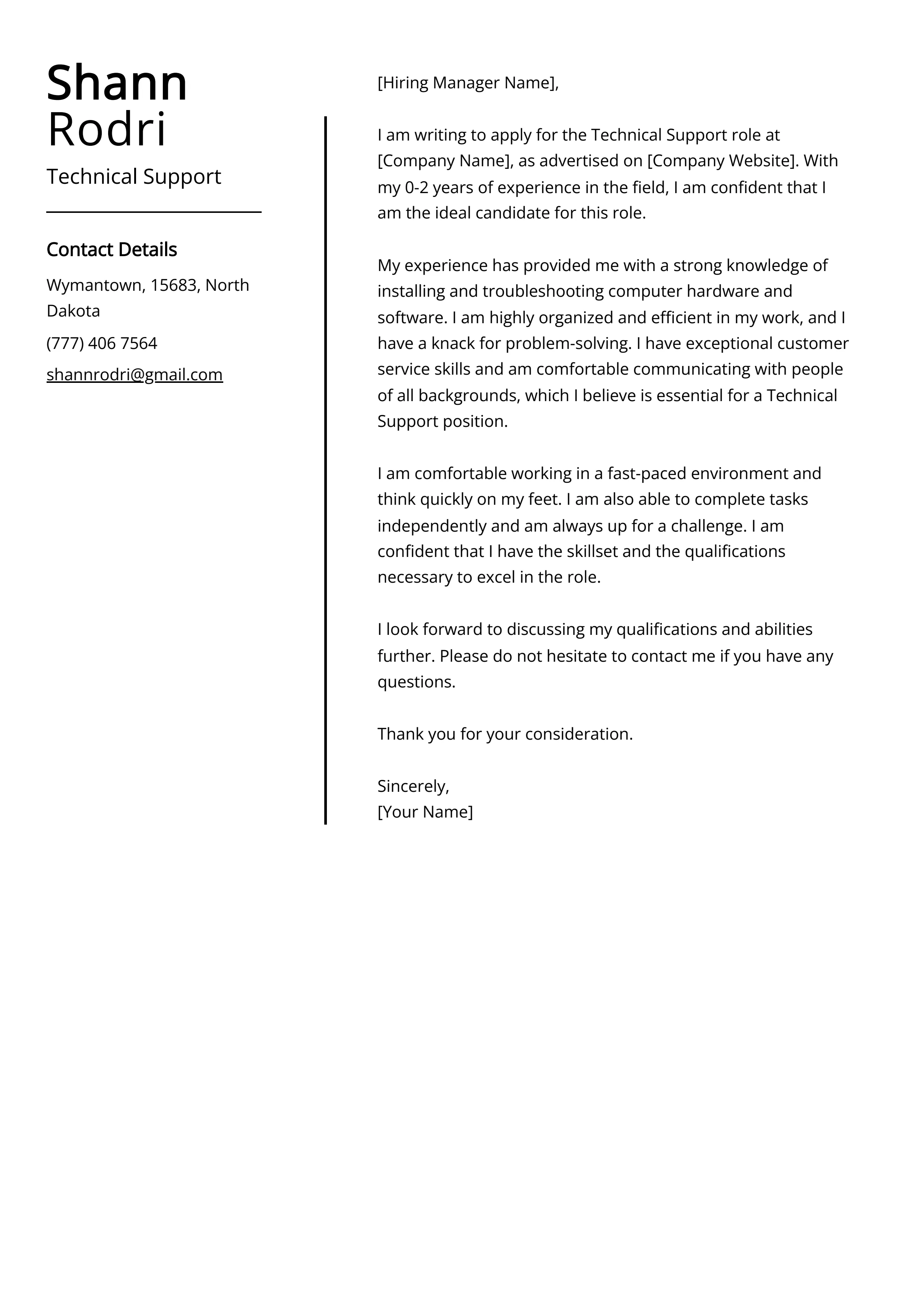
A generic cover letter is unlikely to impress. Customize your letter for each job application. This involves carefully reviewing the job description and aligning your skills and experiences with the specific requirements. Tailoring your letter is essential for demonstrating your genuine interest in the role and the company.
Read the Job Description Carefully
Before you start writing, thoroughly read the job description. Identify the key skills, responsibilities, and qualifications the employer is seeking. Make a list of these requirements and how your skills align. Be sure to understand what the company is looking for in their employees.
Match Skills to Requirements
As you write your cover letter, make sure to explicitly state how your skills and experiences align with the job requirements. Use the same keywords and phrases from the job description to demonstrate that you understand the role and are a good fit. This shows that you have taken the time to analyze the job and that you possess the necessary abilities, even without direct technical support experience.
Quantify Your Accomplishments (If Possible)
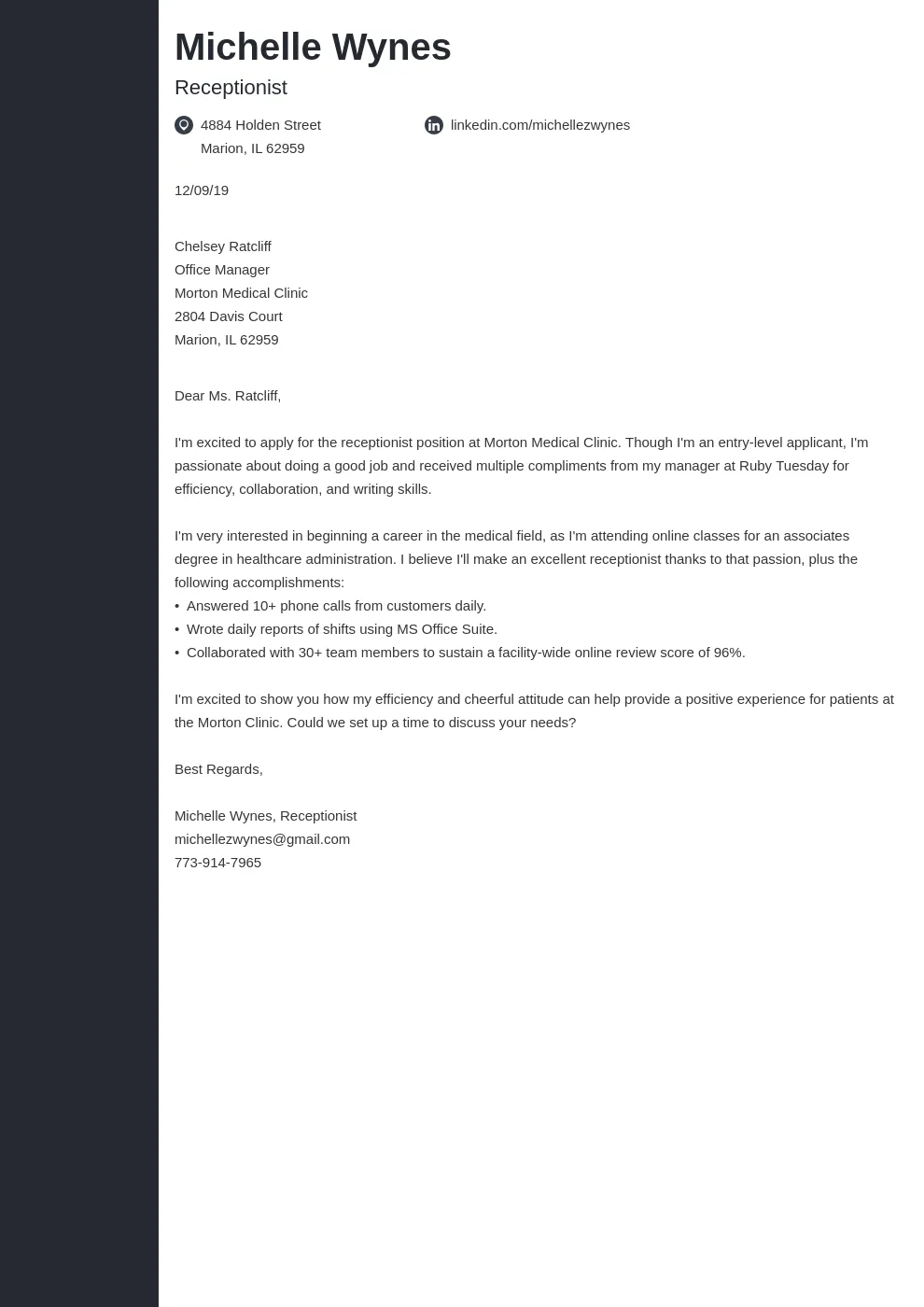
Quantifiable achievements make your cover letter more impactful. While you may not have directly quantified experience, try to find ways to measure your accomplishments in other contexts. Did you reduce customer complaints in a previous role? Did you increase the efficiency of a project? Provide specific numbers and metrics to showcase your achievements and the impact you’ve made. Even something simple like, “Successfully troubleshooted computer issues for family members on over 20 occasions” can add value.
Even Without Experience
Addressing the lack of experience directly is an important part of your cover letter. Acknowledge the gap, but don’t dwell on it. Instead, focus on what you do bring to the table. Emphasize your enthusiasm, your willingness to learn, and the skills you possess. This approach shows that you are self-aware and proactive in overcoming any perceived shortcomings.
Showcase Achievements in Other Fields
Your previous work experience, even if it’s not directly related to tech support, can still be valuable. Highlight accomplishments, such as customer service awards, successful project management, or any instances where you exceeded expectations. These achievements show that you’re a dedicated and capable individual who is likely to excel in a new environment. Use these examples to demonstrate your potential to adapt quickly and deliver results.
Highlight Relevant Coursework or Certifications
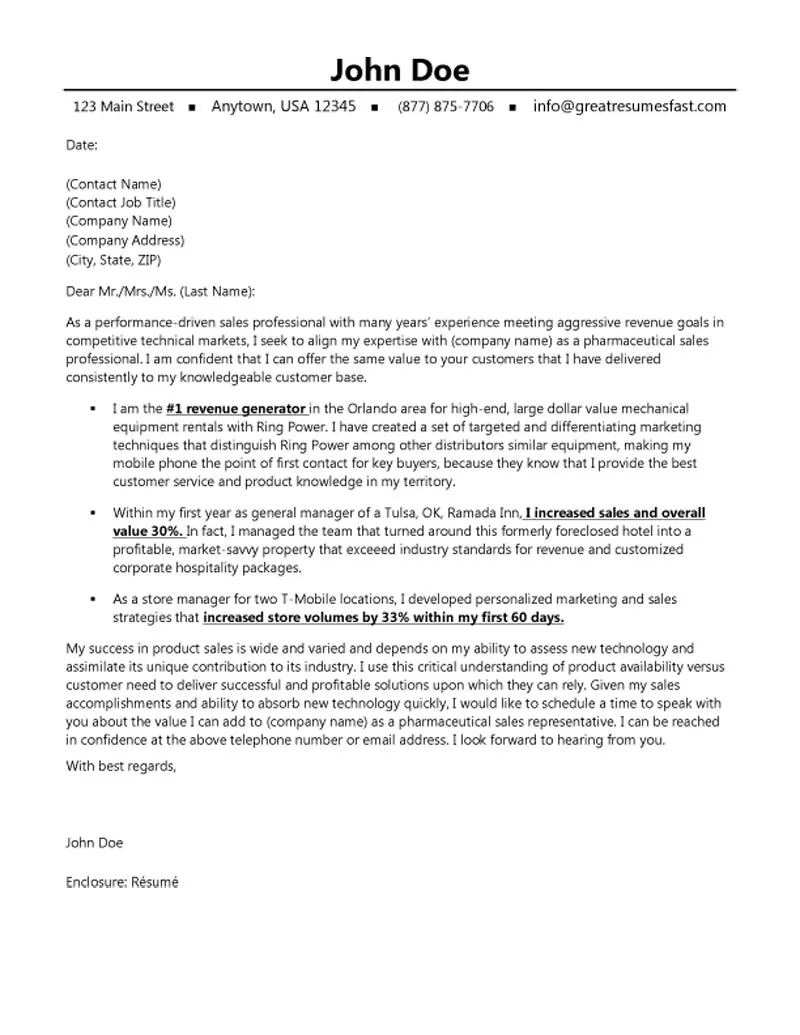
If you have completed any relevant coursework or obtained certifications, make sure to include them. This includes online courses, boot camps, and industry-recognized certifications. Even if the coursework is not directly related to tech support, it can still demonstrate your commitment to learning and your ability to acquire new knowledge. List any relevant technical skills gained, such as understanding basic networking, or experience with specific software. Consider courses in customer service or communication.
Why This Role?
Employers want to know why you are interested in the specific role and the company. Showing that you have done your research and are genuinely interested in the opportunity will increase your chances of getting an interview.
Research the Company
Before writing your cover letter, take the time to research the company. Understand their mission, values, and products or services. If possible, identify the company’s recent projects or initiatives. This knowledge will help you tailor your letter and demonstrate your genuine interest. You can also see where you might fit in the company.
Show You Understand the Role
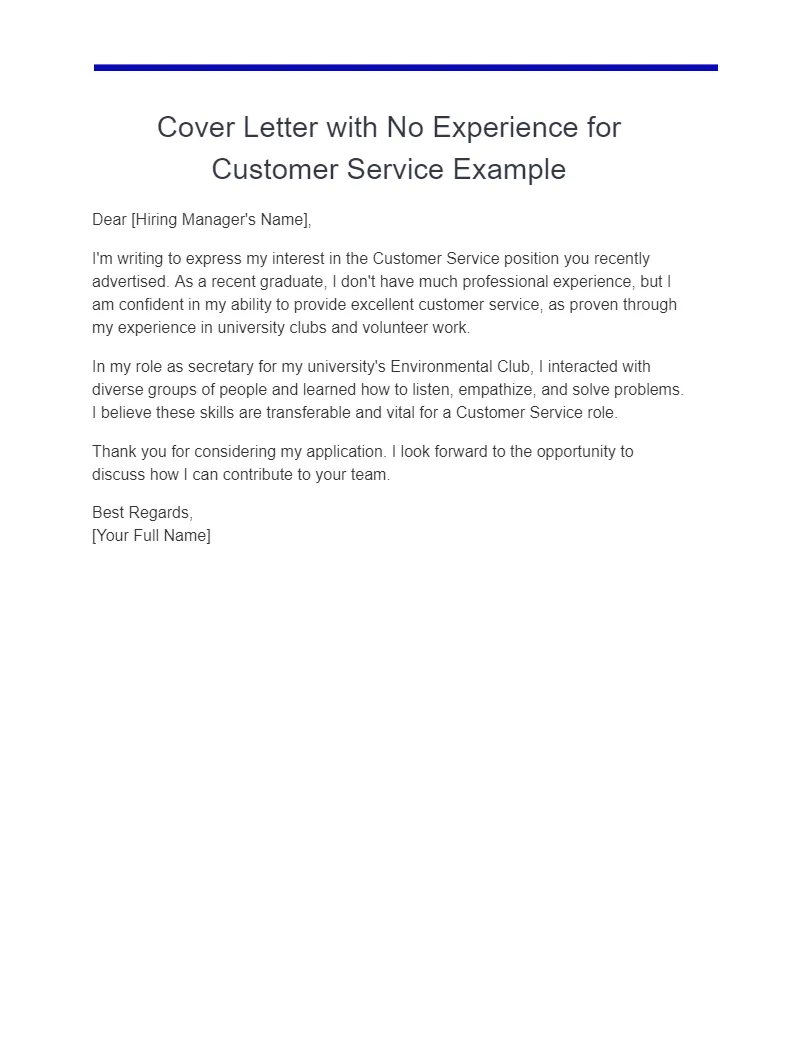
In your cover letter, express your understanding of the technical support role. What are the main responsibilities? What challenges do support professionals face? Demonstrate your knowledge of the role and your ability to perform well. This shows that you have a good understanding of what the job entails and that you are ready to take on the responsibilities.
Address the Lack of Experience Directly
Acknowledge the lack of experience directly and reassure the employer that you still have something to offer. Focus on your eagerness to learn and your ability to adapt. Instead of apologizing for your lack of experience, frame it as an opportunity to bring fresh perspectives and enthusiasm to the team.
Acknowledge and Reassure
In your cover letter, address the elephant in the room: your lack of experience. It’s okay to briefly acknowledge that you might not have the same experience level as other candidates. Reassure the employer by emphasizing your other relevant skills. For example, you could say, “While I may not have direct experience in a technical support role, my background in customer service and my strong problem-solving skills have prepared me to succeed in this position.” This shows that you understand their concerns while highlighting your value.
Be Confident and Positive
Maintain a confident and positive tone throughout your cover letter. Emphasize your skills, your enthusiasm, and your willingness to learn. Avoid using negative language or apologizing for your lack of experience. Your cover letter is your chance to sell yourself to the employer, so it’s crucial to project confidence and optimism. Let the employer know that you are capable of doing the job even without experience.
Proofread and Polish
A polished cover letter is essential for making a positive first impression. Take the time to carefully proofread your letter for any errors in grammar, spelling, or punctuation. Ask someone else to read it over and provide feedback.
Check for Errors
Before submitting your cover letter, carefully check for any errors. Typos, grammatical errors, and punctuation mistakes can undermine your credibility. Make sure that your contact information is correct. Double-check that you’ve used the correct company name. Ensure that the formatting is consistent and easy to read. Thorough proofreading is essential to present yourself professionally.
Get Feedback
Ask a friend, family member, or career counselor to review your cover letter. Fresh eyes can catch errors that you might have missed. Ask for feedback on the clarity, conciseness, and overall impact of your letter. Feedback will help you refine your cover letter and increase your chances of getting noticed. Consider getting feedback from someone in a tech-related field or from someone who does hiring.
The Closing
The closing of your cover letter is just as important as the rest of the content. This is your final opportunity to leave a lasting impression. Express your interest in the role, summarize your key qualifications, and include your contact information. Make sure that your tone remains professional, confident, and enthusiastic.
Express Your Interest
Reiterate your interest in the role and express your enthusiasm for the opportunity. Tell the employer that you are excited about the prospect of joining their team. Show that you are genuinely interested in the role. This will leave a lasting impression on the hiring manager.
Include Contact Information
Make sure to include your contact information, including your phone number, email address, and links to your online profiles (e.g., LinkedIn). This makes it easy for the employer to reach you. Provide all the information they need to contact you. Make sure all your contact information is up to date and accurate.
